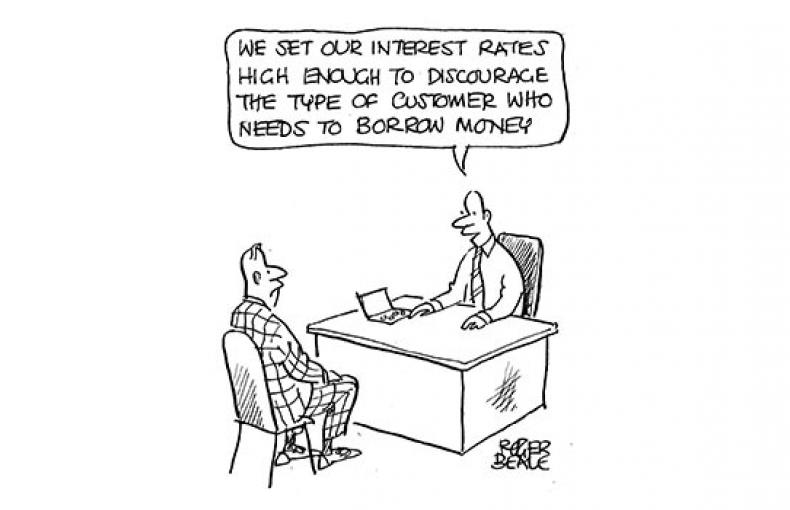
How managers can set the right incentives for loan officers to screen borrowers.
- By
- April 23, 2015
- CBR - Finance

How managers can set the right incentives for loan officers to screen borrowers.
The criticism that banker compensation encourages imprudent risk-taking has become conventional thinking among bank regulators, academic researchers, and the mainstream media. The Federal Reserve has cited flawed compensation as a cause of the 2007–10 financial crisis, and the Fed and other bank regulators have advanced guidelines to change pay practices beyond just the top brass. But regulators should tread carefully, according to research by Chicago Booth’s Kinda Hachem. She contends that compensation and risk-taking interact in more subtle ways, so what at first seems flawed or imprudent may actually be part of a rational strategy.
Managers design pay packages to align the interests of employees with those of the organization. In banks, the managers determine how much interest to charge different types of borrowers. They then compensate loan officers for screening potential borrowers for creditworthiness and charging the appropriate interest rates.
Should a manager ever reward a loan officer for failed loans? The obvious answer seems to be no, but Hachem finds that rewarding failure could have benefits. Using a theoretical model, she shows that when loan officers are rewarded only for success, banks tend to engage in riskier lending.
Previous research has found that high interest rates increase the probability of default, particularly among weaker borrowers. Suppose the bank manager prescribes low rates for these weaker borrowers to help prevent their loans from going bad. Since good borrowers are almost certain to succeed at low rates, compensating only successful loans can entice the officer to save himself the cost of screening and charge everyone the same low interest rate.
This deviation sacrifices potential income for the bank. As long as a loan is repaid, the bank earns more if it charges a higher interest rate. Good borrowers are better at repayment so, if all else is equal, the manager doesn’t want to offer them very low rates. Loan officers must then be paid much more for success at high rates; otherwise they won’t screen to identify borrowers who can repay those rates.
Hachem’s model shows two ways for the manager to lower his wage bill and still elicit screening. One is to prescribe very high interest rates for weaker borrowers—so high that even a good borrower might run into trouble if mistakenly charged that rate. The manager thus steers the bank toward riskier lending in order to encourage the loan officer with a smaller pay package to screen. In this scenario, more loans fail but the bank’s adjusted interest rates can make up for the increased failures. “There’s a risk-return tradeoff in expected revenue,” Hachem says. As a manager, “I might then turn to lowering my expenses, and sometimes risk-taking helps me do that.”
A second option is to prescribe affordable rates for weaker borrowers but compensate the officer for those rates only when the loans fail. If a loan made at a low interest rate fails, the manager believes the borrower must indeed have been weak and deduces that the loan officer correctly screened, Hachem says. In this scenario, the officer isn’t easily tempted to charge everyone the same low interest rate, so the manager doesn’t need to pay as much for success at high rates. An extension of Hachem’s model suggests why managers choose the first, riskier option. If the loan officer is supposed to not only screen the loan, but also monitor it after approval, it may not be clear that a failed loan represents proper screening rather than improper monitoring. Managers who compensate loan officers for failed loans could now be encouraging the wrong behavior, so the riskier option, which rewards only success, leads to the smallest wage bill.
If regulators want banks to take less risk, “the division of tasks matters,” Hachem says. It’s easy to blame banker compensation for encouraging risky lending, but changing one element of the pay packages in isolation could have unintended consequences.

Kinda Hachem, “Agency Cost Determinants of Bank Risk-Taking,” Working paper, April 2014.

Big companies try to impose discipline on spending by setting budgets for everything, but the rules lead to lots of waste.
How the Budgeting Tail Wags the Corporate Dog
Regulatory action unrelated to fair lending can nonetheless increase access to credit for historically disadvantaged categories of borrowers.
How Fixing Troubled Banks Can Help Minorities and Women
Capitalisn’t hosts Luigi Zingales and Bethany McLean speak with Bill Browder about how to improve the sanctions regime.
Capitalisn’t: Ukraine—Sanctioning the Oligarchs’ EnablersYour Privacy
We want to demonstrate our commitment to your privacy. Please review Chicago Booth's privacy notice, which provides information explaining how and why we collect particular information when you visit our website.